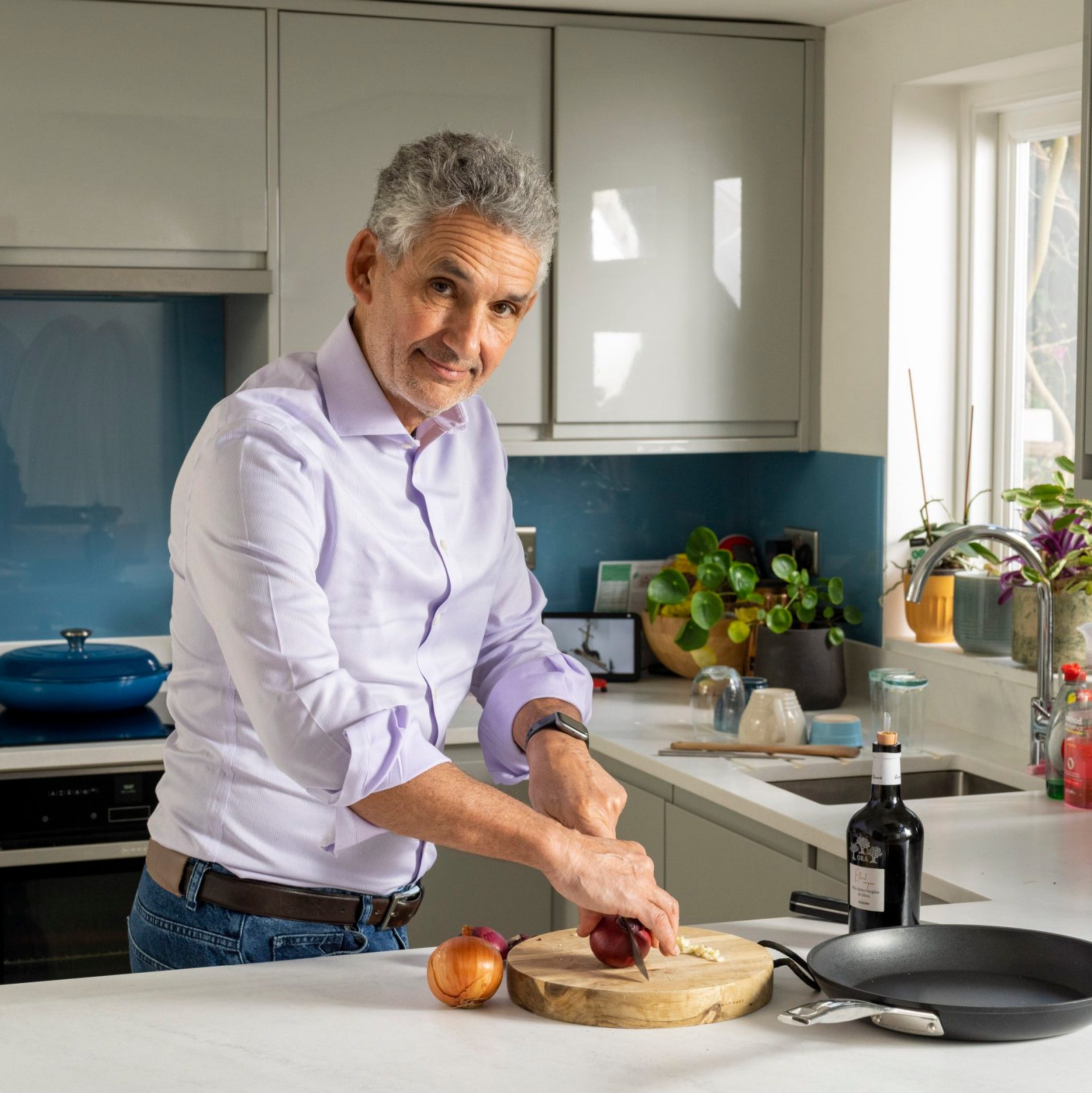
to eat well if we want to stay a healthy weight. We just... momentarily forget in the face of temptation, right?
Well, perhaps not. Last month, as part of its ongoing enquiry into ultra-processed food, the House of Lords Food, Diet and Obesity Committee asked a panel of the nation’s leading academics, scientists and experts what a healthy diet looks like, and how well the UK’s dietary guidelines tackle obesity.
.
So where did these dieting diktats come from, how has science superseded them, and what should they be replaced with?
All the out-of-date rules
Eat low fat spreads, not cheese or butter
.”
, says Spector. It is packed with polyphenols — natural chemicals with antioxidant powers that are great for heart health and fuel our gut microbes.

Less so spreads. Low-fat spreads often contain emulsifiers and other additives, he explains, making them an ultra-processed food (UPF). In fact: “In general, if a product says ‘low fat’ on the label, it is ultra-processed. We now know that high intakes of ultra-processed food are linked to poor health outcomes, so this advice is out of date,” he says.
On the other hand, butter contains a gut-friendly short-chain fatty acid called butyrate, explains leading nutritional therapist Lucy Miller: “It may also help improve insulin resistance and glucose metabolism as well as promote the production of hormones that regulate hunger and satiety (ghrelin and leptin), possibly contributing to weight management.”
, Giles Yeo: “Ultimately, the saturated fats within real butters and cheeses, at a high enough dose, will have a real impact on some people’s weight and health – for example, those whose cholesterol levels are sensitive to saturated fats.”
Do not skip meals
Scroll through the NHS’s “eight tips” and you will also find the advice “Do not skip breakfast”. Where did this come from? “The Government advice to never miss a meal was believed to help promote healthy eating habits, to stabilise blood sugar and reduce cravings and overeating, to maintain a healthy metabolism and to ensure nutrient intake,” says Miller. The operative word, she suggests, being “was”. Studies now suggest that the timing of meals and frequency is less impactful on metabolic health and weight management than previously thought – unless you’re eating after 9pm (see below).
– it’s very personalised so it shouldn’t be in general guidelines,” summarises Spector.

So what should we be recommending instead? Quality, not quantity, suggests Miller: “Focussing on the composition and quality of the meal has emerged as a far more effective way of promoting overall health and reduction in disease.” Nutrient-dense foods also keep you feeling fuller for longer.
Snack or graze regularly throughout the day
“Snacking regularly isn’t part of the official NHS guidelines, but it’s an example of old-fashioned, entrenched thinking that we need to shake off if we want to move forward,” says Spector. The advice to “graze not gorge” harks back to the 80s, when it was believed that it would stabilise blood sugar, thus reducing cravings and overeating.
However, says Spector, our bodies are simply not designed for this constant grazing. It can, he suggests, “mean that we never give our gut microbes a well-earned rest, and it can also be more difficult to listen to our bodies’ hunger and satiety signals”.
Plus, as Miller points out, today’s food landscape leaves us tempted by highly processed sugary snacks, which actually lead to sharper (not lower) spikes in our blood sugar levels, followed inevitably by slumps and then more food cravings.
. Otherwise, there were no associations between health and frequency of snacking. It was snack quality that counted. “People who ate low-quality snacks were more likely to have poorer health measures, such as higher blood sugar and fat levels,” says Spector. So here again, he suggests, recommendations should really refocus on “quality and timing rather than how much or how often you eat... A diverse, plant-rich diet keeps you fuller for longer, worrying about how often we eat becomes less relevant.”
A third of your diet should come from starchy foods
NHS Eatwell advice states: “Starchy food should make up just over a third of what we eat…. Starchy foods are a good source of energy and the main source of a range of nutrients in our diet.”
So are carbs still king? Plenty of nutritionists would question this. “That may well have been good advice a few decades ago, because even well into the 60s US and UK labour forces comprised mostly manual workers – we expended a lot of physical energy,” says nutritionist Petronella Ravenshear. “We don’t need that kind of food these days when we’re sitting for 40 hours a week. Ever since we reduced dietary fat and increased grains, we’ve become fatter and fatter.”
Ravenshear believes too many carbs are adding to the national obesity problem and that it’s time to rewrite the advice on this one. So what would she like to see instead? “I’d recommend a diet based on vegetables, protein and healthy fats, like olive oil. Starchy foods and snacks encourage weight gain and all the pro-inflammatory ‘lifestyle diseases’ and should be kept to a minimum.”

‘Tot up the nutrients to tell if a food is good for you’
For decades, the relative health of a food has been decided through pretty simple sums: totting up the number of “nutrients of concern” within them – fat, say, or sugar, and weighing those up against the positives, like vitamins. However, “we now believe that the food matrix and quality of food are more important than their vitamin levels or macronutrient content,” says Spector.
In fact, recent studies suggest that a food’s physical structure (or “matrix”) alters its impact on our health, explains Rob Percival, head of food policy at the Soil Association, who gave evidence alongside Spector at the House of Lords. “This food matrix can enhance the nourishment provided by a food or meal, including by increasing the bioavailability of nutrients, influencing chewing speeds and digestive kinetics [or how fast we digest foods], triggering hormonal secretions, and promoting feelings of satiety,” he says.

. Break a food up – mash it into a breakfast bar, for example - and your body has to work less hard to digest it, and more fat and sugar is taken up into your blood. Queue blood sugar spike, dramatic crash, and more cravings.
Unfortunately, you’ve got to examine the food on offer in an NHS hospital, particularly the nutritional supplements and fortified meal replacement drinks given to some patients, to see that ultra-processed ingredients are still firmly on the menu within the NHS.
The new rules (or rule)
Have we all been playing the dieting game with the wrong set of rules? Well, not entirely. Public health messages to “eat more fruit and veg”, and increase fibre, for example, are important, says Spector, “and do serve a purpose”.
There is, says Yeo, still something to be said for guidelines that set base nutritional standards.
. Some that currently fall within the woolly definition are relatively benign – wholemeal supermarket bread, for instance.
Guidelines that fed both processing and nutritional composition into the matrix, spitting out the worst offenders on all fronts, would be ideal.
In the meantime, if you want to stay healthy, and lose weight, there may be one key commandment to follow. As Spector says: “We don’t need highly processed fortified foods; we need whole foods.”
Recommended
What eating bread really does to your body – and the healthiest supermarket loaves to buy
Read more
Play The Telegraph’s brilliant range of Puzzles - and feel brighter every day. Train your brain and boost your mood with PlusWord, the Mini Crossword, the fearsome Killer Sudoku and even the classic Cryptic Crossword.


Post a Comment
0Comments